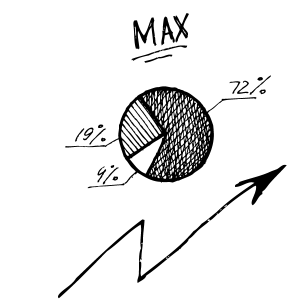Privacy law and data ownership made a rare appearance in the news headlines back in February 2009 when the social network Facebook canceled changes it had made to its terms of service.
The changes had gone relatively unnoticed until a blog post (entitled "Facebook's New Terms of Service: We Can Do Anything We Want With Your Content. Forever.") prompted closer public scrutiny of the policy, which some consumer advocates said gave Facebook too much control of user data.
According to Ian Lloyd, who teaches Information Technology (IT) Law at the University of Strathclyde Law School in Glasgow, these kinds of stories could become more common as technology develops.
"In what is often called the information society, legal issues are assuming increasing importance," says Lloyd. "These range from the very practical - can a European company share personal data on its employees with a US-owned parent company to the - at least presently - theoretical, such as can someone be robbed of property in a virtual world, such as Second Life."
Strathclyde is one of a number of universities - including Essex, Southampton, LSE, Leeds, Queen Mary, Hannover, Düsseldorf, and John Marshall - that offer LL.M. programs focused on IT Law. These programs include coursework in subjects ranging from technology contracting, intellectual property, and antitrust to e-commerce, privacy, and identity management.
"Even in today's troubled financial environment, IT industries are major players and law firms are looking for graduates who have an understanding of the law affecting these important clients," says Lloyd. "Whether it is complying with data protection legislation, securing rights in domain names, running an online shop or patenting software, the possibilities are almost endless."
The same is true for lawyers working in other technology sectors. Companies are facing a wide range of legal issues associated with their technologies and assets, according to Anton Vedder, coordinator of the Law & Technology LL.M. program at Tilburg University in the Netherlands.
"Law firms and big companies like Philips and ABM Amro see that they need a new kind of lawyer to do work with new technologies," says Vedder.
Brave new lawyers
But when Vedder speaks of a "new kind of lawyer," he does not just mean people who understand the technology, but also someone who cares about its possible social impacts.
"We are going to witness a convergence of all kinds of technologies; not merely information technology, but things like nanotechnology, biotechnology, and neuroscience," says Vedder. "As a result, it will be necessary to think about regulation of human behavior with regard to all these possibilities."
"Lawyers who want to do something with the regulation of technology should have an eye that transcends traditional law," says Vedder. "They have to have a look at social sciences, risk management, and ethics."
Tilburg's is one of several LL.M. programs that looks generally at the intersection of law and technology; others include Edinburgh, Ottawa, Suffolk, George Washington University, Stanford, and Washington University. Most of these programs share some similarities, like an intellectual property component, but almost all programs allow students to focus their electives on a specific area, such as IT, e-commerce, communications, or biomedicine.
In addition to the core law and technology courses at Stanford Law School, LL.M. students in Law, Science, and Technology can take classes outside of the law school, such as at Stanford's Graduate School of Business. According to Roland Vogl, the program's executive director, going beyond traditional law classes helps prepare students for the wider context they will face when re-entering the job market.
"More and more business assets are IP assets, so we are a generation of lawyers who need to be trained in how to deal with these kinds of property and assets," says Vogl.
About landing a job in the United States after finishing an LL.M., Vogl admits that it continues to be more difficult for foreign lawyers with an LL.M. degree than for lawyers with a US JD degree, simply because US firms often don't know how to evaluate foreign academic accomplishments. But Vogl also notes that the prospects for foreign lawyers with an LL.M. degree from a top US law school to "get their foot in the door" at a US law firm have improved greatly in recent years.
"I've found that a lot of law firms find our LLMs extremely valuable," says Vogl. "Their English is great, they understand the US system, and they also have this international experience and client contacts in their home countries."
Charlotte Waelde also sees a specialized LL.M. as an asset on the job market. Waelde directs the Innovation, Technology and Law LL.M. program at the University of Edinburgh Law School, and is confident that demand for specialized lawyers in the field will not subside.
"If someone has done an LL.M. in a relevant field, they are going to come in and start work heads and shoulders above somebody who hasn't done it," says Waelde.
Waelde also notes that her program appeals to a growing number of prospective students without formal legal backgrounds - perhaps another sign that Technology Law is becoming increasingly relevant to everyday life.
"New technologies are going to become more, not less important - even despite the current recession or depression we're in," says Waelde.
"The more ubiquitous technologies like the Internet become, the more problematic they become," says Waelde, citing increasing international and national efforts to curb cyber crime. "It is never going to go away; it is only going to expand."
Photo: Victorgrigas / Creative Commons (cropped)










